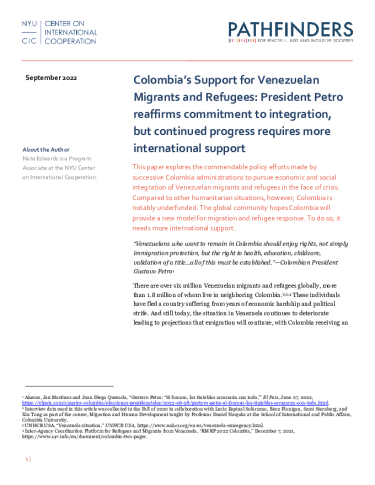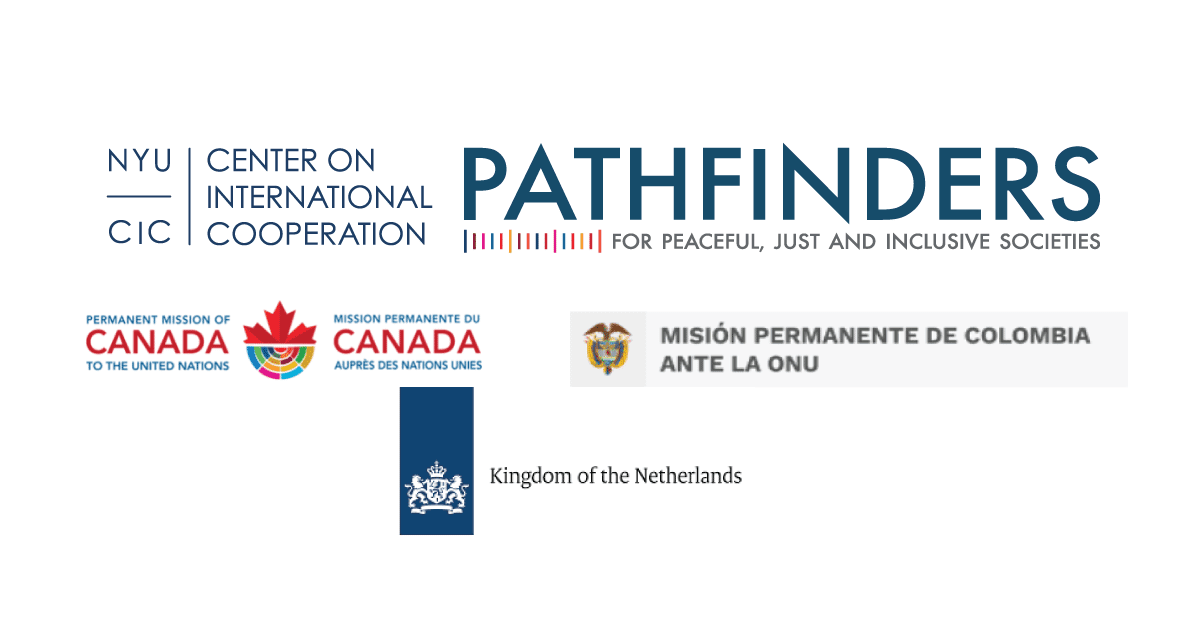Background
There are over seven million Venezuelan migrants and refugees globally, nearly 2.5 million of which live in neighboring Colombia. Distinct from most migrant and refugee stories in recent years, Colombia has responded to this influx with a suite of policies aimed at integrating Venezuelans, rather than deterring them. This response has been roundly welcomed by the global migrant and refugee protection communities, which now wait in hope for signs that the Colombia model will not only continue to succeed, but prove replicable elsewhere.
Colombia’s commitment to progressive migration and protection policy has remained consistent, even as contexts have changed and presidents have transitioned. Across three presidencies and in the face of COVID-19, with its economic consequences, the principle of integration has guided Colombia’s migration policy response—recognizing this as a long-term solution. Focused on regularization pathways and access to the labor market, policies such as the Special Permit of Permanence (PEP) and the Statute for temporary protection of Venezuelan Migrants (ETPV) have created durable mechanisms for migrants to access work, healthcare, and social services. Meanwhile Border Mobility Cards have formalized circular migration practices by those who live along the Colombian-Venezuelan border. Such people-centered policies demonstrate a recognition of the individual challenges that Venezuelans face in their migration journeys, and respond to their needs. They also take as a starting point that, when properly supported, migrants and refugees can offer an economic benefit to host countries. The international community can learn from Colombia’s experience as their integration strategy continues to evolve.
At the same time, however, Colombia’s migration and refugee policy, which the United Nations High Commissioner for Refugees has rightfully lauded as, “the most important humanitarian gesture” in decades, is facing numerous challenges. Recent years of escalating border violence, growing poverty and food insecurity, strained social systems, domestic discontent, and heightened xenophobia—all aggravated by the global pandemic and an unprecedented economic shock—have given rise to a new constellation of hardship. Successful integration policy requires a recognition of the interdependent social, economic, and political challenges that the country faces. And therefore, it requires cross-sector collaboration to create effective policy solutions. Experts across agencies and disciplines need to come together to apply a humanitarian-development-peace nexus approach to long-term strategies. Given the ongoing challenges, the country will need to continue to innovate and adapt its migration and protection strategy in order to ensure its success.
While Colombia has remained committed to its integration policy, it has not received adequate international support and funding. While existing commitments from the World Bank, and those recently made by the United States, Canada and the European Union are important, further resources are still necessary. Additional international support is urgently needed both to enable Colombia’s sustained commitment to Venezuelan refugees and migrants, and to signal to the world that such a rights-based act of solidarity does not only rely on national efforts but will also garner international backing.
As migration and forced displacement continues in the region, more and more Latin American countries are faced with the same challenges as Colombia. Taking Colombia as a starting point, the time for peer exchange on best practices in migration and protection response has never been more important. Countries can benefit from exchanging lessons on the successes they’ve had, opportunities they see, and the ongoing challenging they face.

